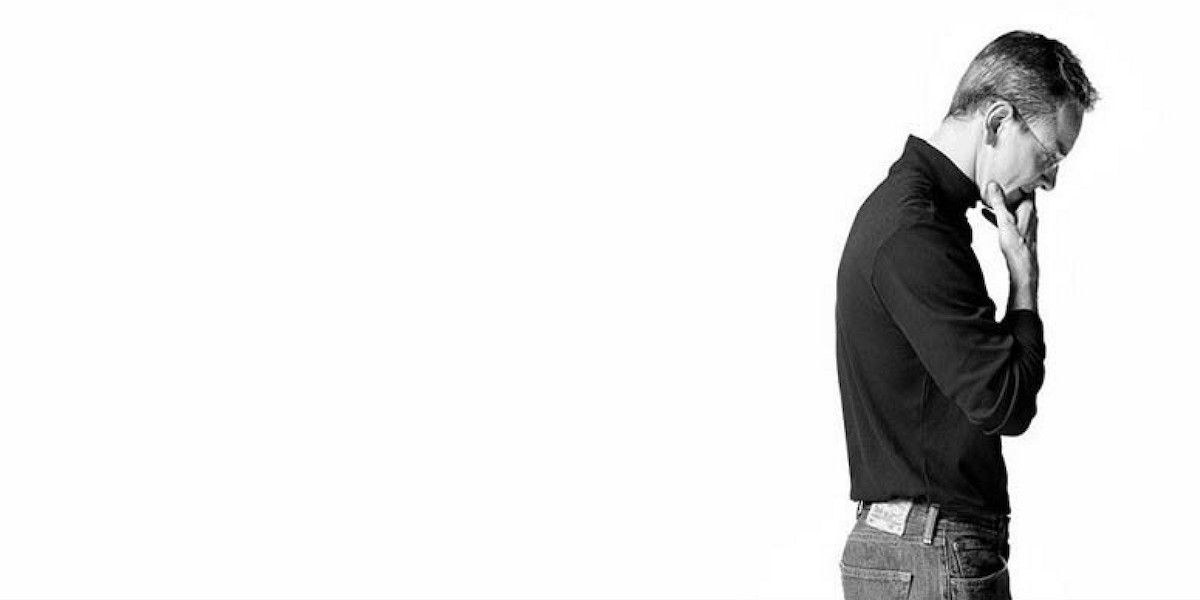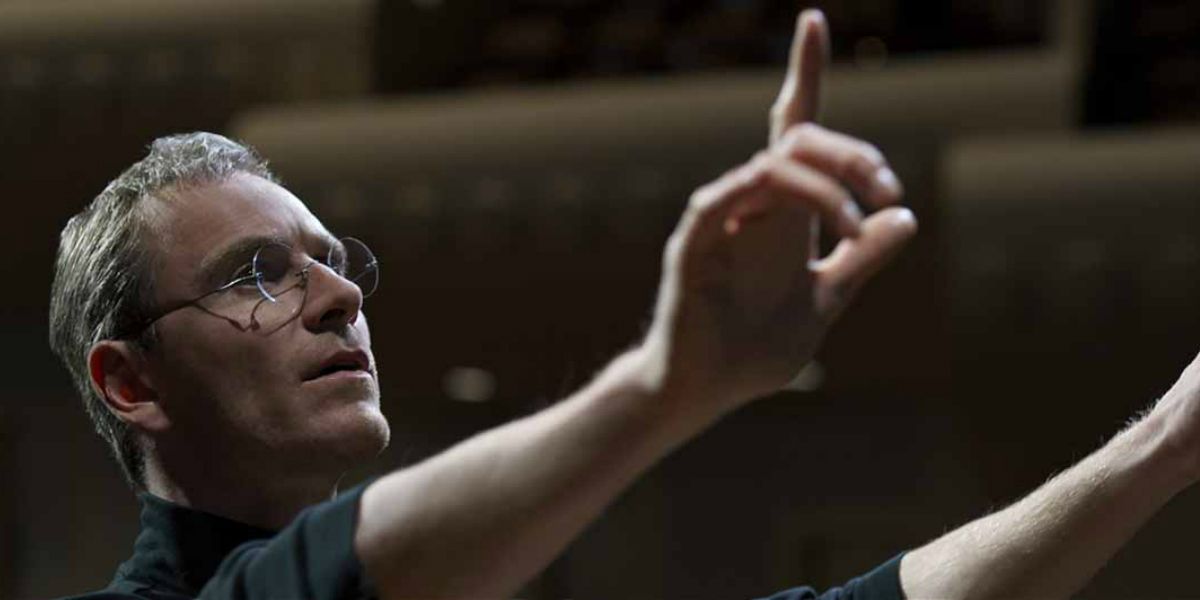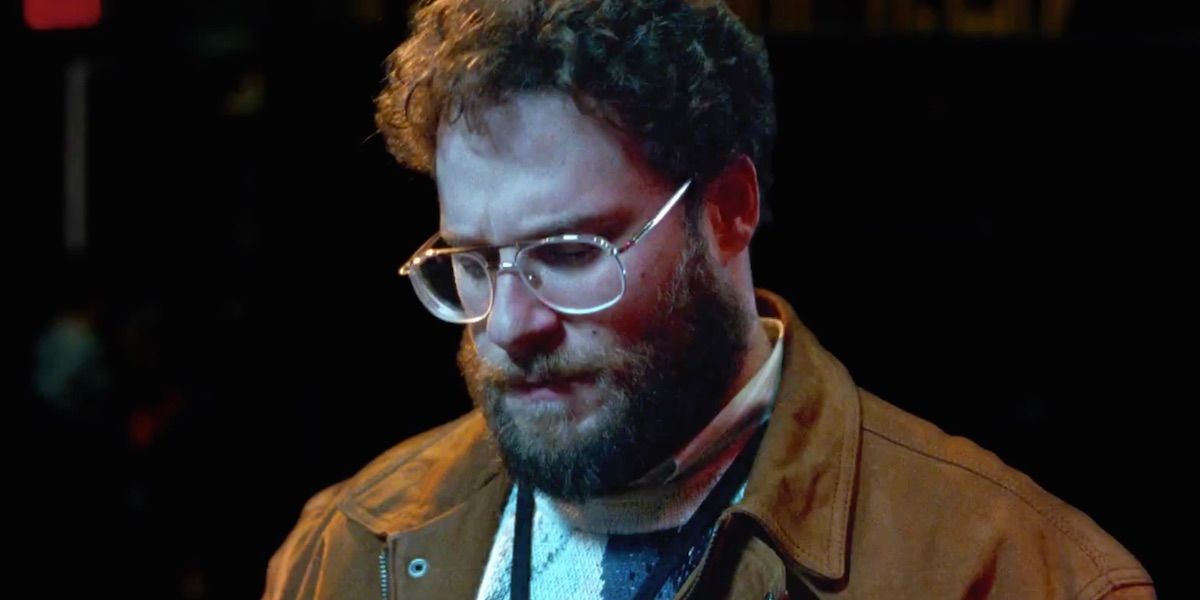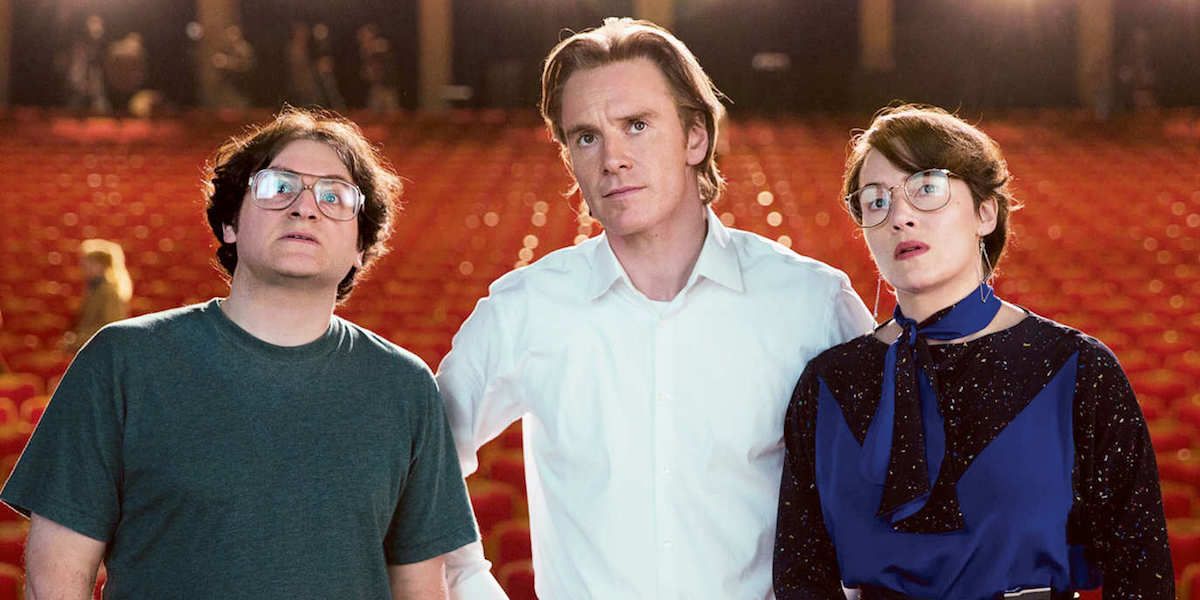Steve Jobs is a quality portrait of Apple's co-founder, with a gripping turn from Fassbender, even if the film plays fast and loose with history
Following success of the Apple II (a revolutionary 8-bit microcomputer), Steve Jobs (Michael Fassbender) and Apple Computer prepare for the launch of Macintosh - with the release of an award-winning TV commercial "1984" (directed by Ridley Scott). Days later, Jobs introduces Macintosh on stage to press, retailers, and industry insiders - in the first of his now iconic keynote announcements. Yet, before Jobs can take the stage, the gruff genius must navigate a parade of familiar faces. Colleagues, acquaintances, and press members that each require a moment of the Apple co-founder's time include Apple II designer Steve Wozniak (Seth Rogen), Macintosh software writer Andy Hertzfeld (Michael Stuhlbarg), and Apple CEO John Sculley (Jeff Daniels).
While marketing department head Joanna Hoffman (Kate Winslet) attempts to keep the tech guru focused on the product launch, Jobs is also confronted by his ex-girlfriend, Chrisann Brennan (Katherine Waterston) who maintains that her daughter, Lisa, was fathered by the Apple founder. Long after, these Jobs' volatile relationships with friends, co-workers, and family, continue to shape the Apple icon's success and alienation - over the course of two decades (and two more product launches).
Loosely adapted from Walter Isaacson's Steve Jobs biography - which was authorized (but never read) by the Apple CEO - Steve Jobs was brought to the big screen by award-winning duo of screenwriter Aaron Sorkin (The Social Network) and director Danny Boyle (127 Hours). Cinephiles will appreciate Sorkin and Boyle's choice to explore Jobs' life at the time of three different product launches and twenty years; however, the unique approach may be off-putting to casual viewers looking for a more straightforward telling of Apple's history. On its own terms, Steve Jobs is a quality portrait of Apple's co-founder, with a gripping turn from Fassbender - even if the film plays fast and loose with history, in order to accurately depict its subject's overall worldview and personal evolution throughout the years.
Steve Jobs is presented in three distinct acts - each one portraying the thirty minutes before three separate product launches (the debut of Macintosh, the NEXT, and the iMac), wherein Jobs is confronted by key people from his personal and professional life (both past and present). The structure succeeds in differentiating Steve Jobs from competing films, such as documentary Steve Jobs: The Man in the Machine and biopic Jobs (starring Ashton Kutcher) - providing an added layer of cinematic ambition as well as a direct juxtaposition between the Apple CEO's personal evolution alongside evolution of his products and the larger tech industry.
To that end, Sorkin and Boyle are more concerned with presenting how Jobs interacted with key people in his life at various points - rather than accurately display what exactly was said. The method will not be palatable for everyone, since Steve Jobs prioritizes characterization over story (there are no blow-by-blow recreations of actual events); nevertheless, it's hard to imagine a more accurate rendering of Jobs' struggle to balance his ambition with his humanity.
Building on Boyle and Sorkin's contributions, Fassbender's subtlety as Jobs is essential in selling Steve Jobs as a quality biopic (and 2015 award contender). The actor refrains from doing an "impression" of Jobs and, instead, captures delicate nuances that serve Boyle and Sorkin's portrait - rather than toiling over a video-perfect recreation of the titular man. At times, the portrayal sketches a harsh picture (which will certainly challenge Apple fandom's reverence for Jobs) but Fassbender, Boyle, and Sorkin include enough vulnerabilities in the mix to deliver a layered look at Jobs - one that, in spite of his rough edges, lives up to the icon's inspiring legacy.
Steve Jobs is a showcase for Fassbender, without much space for his co-stars to steal the spotlight; though, Rogen, Stuhlbarg, Daniels, as well as Winslet do their real-life counterparts justice and play pivotal roles in drawing Jobs into entertaining conversations and encounters that also reflect poignant features of the Apple founder, as a portrait, throughout his journey on screen. Winslet and Rogen, in particular, provide memorable turns - with Rogen stretching beyond his usual funny guy roles for an affecting portrayal of beloved Apple II designer, Steve Wozniak. More than any other character, Jobs' daughter is instrumental in reflecting the tech guru's personal growth and credit for the character's part in humanizing Jobs goes to three talented actresses (that portray Lisa Brennan at different ages): Perla Haney-Jardine, Ripley Sobo, and Makenzie Moss.
That all said, it's important for potential viewers to understand that Steve Jobs isn't a true-life retelling of actual events - and many of the film's most captivating scenes are entirely fabricated or, at the very least, exaggerated versions of conversations that occurred at a different date (not backstage moments before an Apple keynote). For that reason, moviegoers who are looking for insight into the formation of Apple and its bumpy road to modern success, or a layered story with a universal message, there are better options available - since it'll be hard to find a definitive line between fact and fiction in Steve Jobs.
Even Apple has its critics, and like the company's products, Sorkin's attempt to "think different" also means producing a film that isn't going to be for everyone - especially viewers looking for an informative biopic. Still, much like Jobs, Sorkin plays the orchestra, surrounding himself with a talented roster of creatives who deliver a polished and unique experience - one that will, without a doubt, engage viewers through rich cinematography (from Alwin H. Küchler), biting dialogue, clever direction, powerful performances, and a great soundtrack (courtesy of Daniel Pemberton). Ultimately, moviegoers who are not concerned with what is true and are, instead, interested in understanding the man behind Apple, Sorkin and Boyle's adaptation delivers an earnest and intriguing portrayal of Steve Jobs, the imperfect person.
TRAILER
_____________________________________________________________
Steve Jobs runs 122 minutes and is Rated R for language. Now playing in theaters.
Let us know what you thought of the film in the comment section below.




